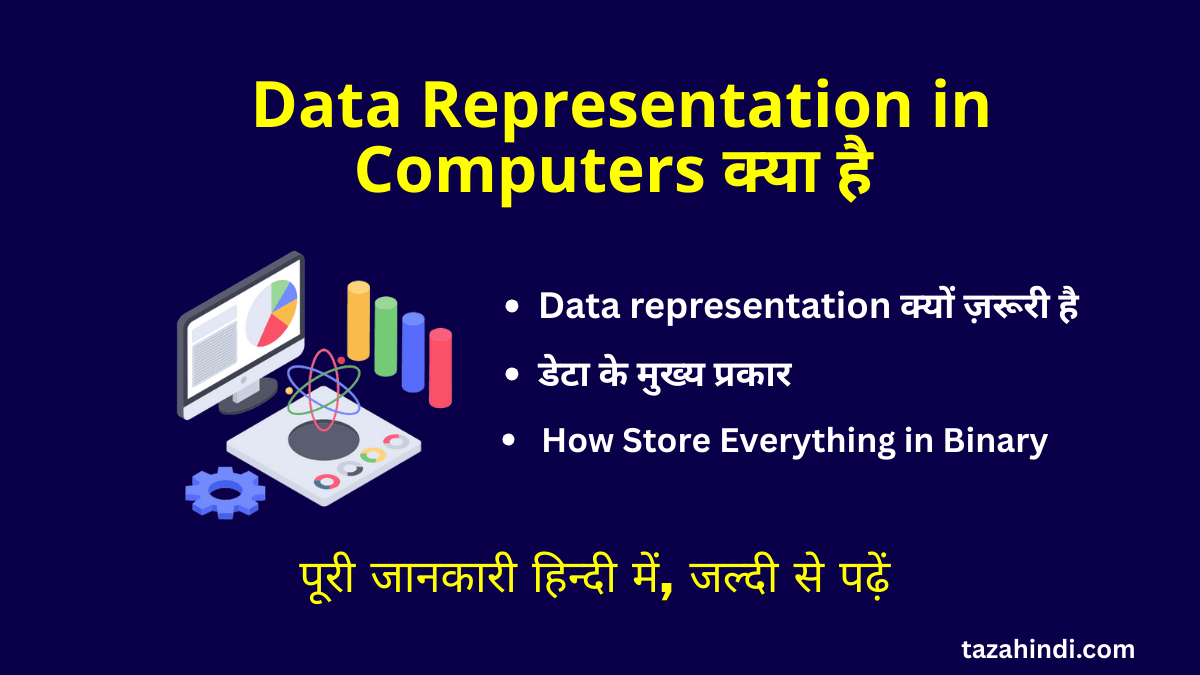In the realm of computer networking, data transmission plays a pivotal role. Efficient and reliable data transfer is essential for smooth communication between devices and systems. Network protocols, such as TCP (Transmission Control Protocol) and UDP (User Datagram Protocol), govern this process. While both protocols facilitate data transmission, they have distinct characteristics, use cases, and applications. In this article, I will explain what is the importance of Network Protocols in Data Transmission, difference between TCP and UDP, exploring their definitions, features, uses, applications, and what factors to need consider when choosing between TCP and UDP.
Importance of Network Protocols in Data Transmission
Network protocols serve as a set of rules and guidelines that enable devices to communicate with each other over a network. They ensure that data is transmitted securely, efficiently, and accurately. Without protocols, the vast interconnected web of networks we rely on today would cease to function effectively. TCP and UDP are two prominent protocols that have different approaches to data transmission, each with its own strengths and weaknesses.
What is TCP ?
TCP, or Transmission Control Protocol, is a connection-oriented protocol that provides reliable and ordered delivery of data packets across networks. It establishes a virtual connection between the sender and receiver before transmitting data. TCP ensures that all packets arrive in the correct order and can retransmit lost or corrupted packets to guarantee data integrity.
Characteristics of TCP
- Connection-oriented: TCP establishes a connection between the sender and receiver before data transfer.
- Reliability: It ensures reliable delivery of data packets by acknowledging their receipt and retransmitting if necessary.
- Ordered data delivery: TCP guarantees that data packets arrive in the same order they were sent.
- Error detection and recovery: TCP employs checksums and sequence numbers to detect errors and recover lost packets.
- Flow control: TCP regulates the flow of data to prevent congestion and ensure efficient transmission.
- Slower speed: Due to the overhead of establishing connections and ensuring reliability, TCP tends to be slower than UDP.
Also Read : Best AI Coding Tools to Supercharge Your Career in 2023
Uses of TCP
- Web browsing: TCP is widely used for HTTP (Hypertext Transfer Protocol) connections, enabling users to access websites and retrieve web pages.
- Email communication: TCP forms the basis of protocols like SMTP (Simple Mail Transfer Protocol) and IMAP (Internet Message Access Protocol), ensuring reliable email transmission.
- File transfer: TCP facilitates secure and error-free file transfer through protocols like FTP (File Transfer Protocol) and SFTP (Secure File Transfer Protocol).
- Remote access: TCP supports remote access protocols such as SSH (Secure Shell) and Telnet, enabling users to remotely manage systems.
Applications of TCP
- Web applications: TCP is integral to web applications, ensuring seamless user experiences by reliably delivering web content.
- E-commerce transactions: TCP enables secure and reliable transmission of sensitive information during online transactions.
- Video streaming: TCP is employed in video streaming platforms, ensuring uninterrupted playback and minimizing buffering issues.
- VoIP (Voice over Internet Protocol): TCP facilitates reliable transmission of voice data, ensuring clear and uninterrupted communication in VoIP applications.
Also Read : Top 10 Certifications in Computer Science for High Salary in 2023
What is UDP?
UDP, or User Datagram Protocol, is a connectionless protocol that provides a simple and lightweight mechanism for data transmission. Unlike TCP, UDP does not establish a connection before transmitting data, making it faster but less reliable. It is often used for time-sensitive applications where speed is prioritized over guaranteed delivery.
Characteristics of UDP
- Connectionless: UDP does not establish a connection before sending data, resulting in lower overhead and faster transmission.
- Unreliable delivery: Unlike TCP, UDP does not ensure the delivery of all packets or their order. Lost or corrupted packets are not retransmitted.
- No flow control: UDP does not regulate data flow, which can lead to congestion in high traffic scenarios.
- Simplicity: UDP has a simpler design compared to TCP, making it easier to implement and use.
- Faster speed: Due to its lightweight nature and lack of connection establishment, UDP offers faster transmission speeds than TCP.
Also Read : What is Design Pattern and How They Enhance Software Development
Uses of UDP
- Real-time applications: UDP is commonly used in real-time applications such as online gaming, live streaming, and video conferencing, where speed is crucial, and minor data losses can be tolerated.
- DNS (Domain Name System): UDP is utilized for DNS queries, which translate domain names into IP addresses, enabling users to access websites.
- DHCP (Dynamic Host Configuration Protocol): UDP facilitates the automatic assignment of IP addresses to devices on a network.
- IoT (Internet of Things): UDP is employed in IoT devices to transmit small, time-sensitive packets of data.
Applications of UDP
- VoIP and video conferencing: UDP’s speed makes it suitable for real-time communication applications, ensuring minimal latency and smooth audio/video transmission.
- Streaming media: UDP is utilized in streaming services, delivering a constant stream of data to provide seamless playback and prevent buffering.
- Online gaming: UDP’s low latency and fast transmission make it ideal for online gaming, where real-time interactions are essential.
- Live broadcasts: UDP is often used in live broadcasting scenarios, such as sports events and news coverage, to transmit audio and video streams in real-time.
Also Read : How to Improve Your Programming Skills in 2023
Similarities between TCP and UDP
- Both TCP and UDP are network protocols used for data transmission.
- They operate at the transport layer of the TCP/IP model.
- Both protocols use IP (Internet Protocol) for addressing and routing.
- They support communication between applications running on different devices.
- Both protocols are widely used in various applications and scenarios.
Difference between TCP and UDP
- Connection-oriented vs. connectionless: TCP establishes a connection before transmitting data, ensuring reliable delivery and ordered packets. UDP does not establish a connection and offers faster transmission but lacks reliability and ordered delivery.
- Reliability vs. speed: TCP guarantees reliable and error-free transmission but sacrifices speed due to connection establishment and retransmissions. UDP prioritizes speed and simplicity, accepting potential packet loss and errors.
- Ordered vs. unordered data delivery: TCP guarantees the order of data packets, ensuring they are delivered in the same sequence they were sent. UDP does not guarantee packet ordering.
- Flow control: TCP implements flow control mechanisms to regulate data transmission and prevent congestion. UDP does not include flow control, which can lead to congestion in high-traffic situations.
- Error detection and recovery: TCP employs checksums and sequence numbers to detect errors and recover lost or corrupted packets. UDP does not have built-in error detection or recovery mechanisms.
- Applications: TCP is commonly used in applications that require reliable and ordered data transmission, such as web browsing, email communication, and file transfer. UDP is suitable for real-time applications, including online gaming, live streaming, and IoT devices.
Also Read : How to Learn Data Types of C Sharp Programming
Factors to consider when choosing between TCP and UDP
- Reliability requirements: If data integrity and guaranteed delivery are critical, TCP is the preferred choice. For applications where minor data losses are acceptable, and speed is a priority, UDP may be more suitable.
- Latency sensitivity: Real-time applications such as online gaming or video conferencing require low latency. In such cases, UDP’s faster speed and lower overhead make it a better option.
- Bandwidth considerations: TCP’s flow control mechanisms can efficiently handle congestion and optimize bandwidth utilization. If bandwidth is limited or congestion is a concern, TCP may be a more suitable choice.
- Application requirements: Understanding the specific needs of the application, such as reliability, ordered delivery, or speed, is crucial in determining whether TCP or UDP is the appropriate protocol. Consider the nature of the data being transmitted and the impact of potential packet loss on the application’s functionality.
- Network conditions: The reliability and performance of TCP and UDP can be influenced by network conditions such as latency, packet loss, and network congestion. Analyzing the network environment and assessing its stability can help in selecting the optimal protocol.
- Implementation complexity: UDP is simpler to implement and requires fewer system resources compared to TCP. If simplicity and efficiency are important factors, UDP may be preferred.
Also Read : How to make money with Python programming
Conclusion
In the realm of network protocols, TCP and UDP play vital roles in facilitating data transmission. While TCP ensures reliable and ordered delivery at the cost of increased overhead and latency, UDP offers faster transmission speeds with potential data loss. The choice between TCP and UDP depends on the specific requirements of the application, considering factors such as reliability, speed, latency sensitivity, and network conditions. Understanding the characteristics, uses, and applications of TCP and UDP is essential in making an informed decision for effective data transmission.
FAQs
-
Which protocol is more suitable for web browsing?
TCP is more suitable for web browsing as it guarantees reliable and ordered data delivery, ensuring that web pages are loaded correctly.
-
In which scenarios is UDP commonly used?
UDP is commonly used in scenarios where speed and low latency are crucial, such as online gaming, live streaming, and IoT applications.
-
Can UDP be used for file transfer?
While UDP can be used for file transfer, it is not the preferred choice due to its lack of reliability and potential for packet loss. TCP is better suited for secure and error-free file transfer.
-
Can TCP and UDP be used interchangeably?
TCP and UDP have different characteristics and use cases, so they are not interchangeable. The choice between them depends on the specific requirements of the application.
-
Are there any hybrid protocols that combine features of TCP and UDP?
Yes, there are hybrid protocols like SCTP (Stream Control Transmission Protocol) that aim to combine the reliability of TCP with the speed of UDP, providing a flexible option for certain applications.



